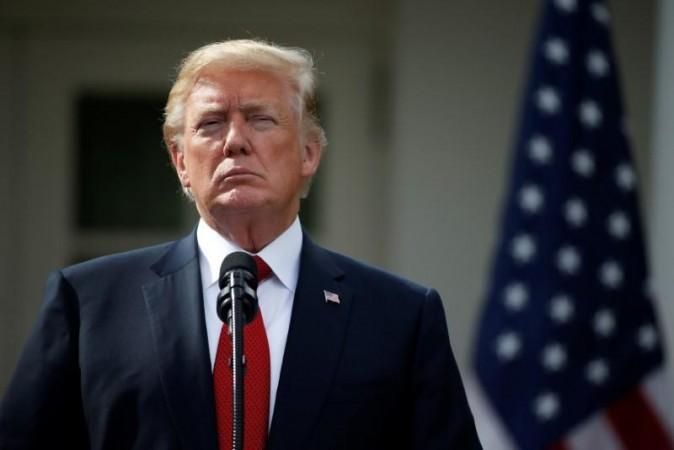
US President Donald Trump on Thursday said he had some reasonably decent news from India and Pakistan, indicating a resolution amid tension between the two countries over the past few days. He did not elaborate.
Trump was speaking at a news conference in Vietnam after a failed summit with North Korean leader Kim Jong Un. Trump hoped the conflict between India and Pakistan will be coming to an end after the two nuclear powers clashed across a contested border in the disputed Kashmir region.
Donald Trump said that the US was "involved" in mediating between arch-rivals India and Pakistan and in "trying to have them stop". "And we have some reasonably decent news... and I think it is going to end... it has been going on for a long time," Trump said in response to questions, referring to the heightened tensions between the two nuclear-armed rivals.
Urging the two countries to make efforts for a "return to stability", the US also repeated that Pakistan must abide by its UN Security Council commitments to deny terrorists a safe haven and block their access to funds.
World powers have urged restraint as tensions escalate following tit-for-tat air strikes this week after a suicide car bombing that killed at least 40 Indian paramilitary police in Indian-controlled Kashmir on February 14.
INTERNATIONAL CONCERN
The latest escalation marks a sudden deterioration in relations between the two countries. As recently as November, Pakistan's leader Imran Khan spoke of "mending ties" with India. The White House urged "both sides to take immediate steps to de-escalate the situation."
US Secretary of State Mike Pompeo said in a statement he had spoken separately with the foreign ministers of India and Pakistan and urged them to "prioritise direct communication and avoid further military activity".
Pakistan's envoy to the United States, Asad Majeed Khan, said Islamabad would like to see the Trump administration play a more active role in easing the crisis.
At the same time, he said the lack of US condemnation of India's strike on Pakistan was "construed and understood as an endorsement of the Indian position, and that is what emboldened them even more".
China, the European Union and other countries also called for restraint. Japan's foreign minister said on Thursday the country was concerned about the "deteriorating situation".
The Chinese government's top diplomat, State Councillor Wang Yi, spoke by telephone with Pakistan Foreign Minister Shah Mahmood Qureshi and expressed "deep concern", China's foreign ministry said in a statement on Thursday.
The United States, Britain and France proposed the United Nations Security Council blacklist Masood Azhar, the head of Pakistan-based Jaish-e-Mohammad, the group that claimed responsibility for the February 14 attack. China is likely to oppose the move.
(Inputs from agencies)









![Priyanka Chopra congratulates Mannara for winning GQ award; latter says 'Didi we will celebrate' [reactions]](https://data1.ibtimes.co.in/en/full/797303/priyanka-chopra-congratulates-mannara-winning-gq-award-latter-says-didi-we-will-celebrate.jpg?w=220&h=138)




